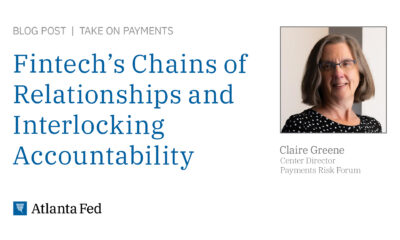Fintech
F|T: The FinTech Times – LoanSnap’s unraveling after raising $100 million

Also: Ratehub has a new CEO.
Welcome to FinTech Times, a weekly newsletter covering the biggest FinTech news from around the world. If you want to read F|T before anyone else, make sure you do subscribe using this form.
After raising $100 million, AI fintech LoanSnap was sued, fined and evicted
AI mortgage startup LoanSnap is facing an avalanche of lawsuits from creditors and has been evicted from its Southern California headquarters, leaving employees worried about the company’s future, TechCrunch has learned.
LoanSnap, founded by serial entrepreneurs Karl Jacob and Allan Carroll, has raised about $100 million in funding since its 2017 seed round, including $90 million between 2021 and 2023, according to PitchBook. Investors include Richard Branson’s Virgin Group, the Chainsmokers’ Mantis Ventures, Baseline Ventures and Reid Hoffman, LoanSnap says.
Despite the capital raised, as of December 2022, LoanSnap has been sued by at least seven creditors, including Wells Fargo, who collectively said the startup owes them more than $2 million. LoanSnap was also fined by state and federal agencies and nearly lost its license to operate in Connecticut, according to legal documents obtained by TechCrunch.
Executive turnover continues in Canada’s tech sector as Ratehub names new CEO
Toronto-based FinTech company Ratehub has named Naga Parvatharajan as its new CEO in the latest of what has been a flurry of executive turnover in the Canadian tech sector this year.
Parvatharajan will take over from co-founders Alyssa Furtado and James Laird, who have led the company as co-CEOs since its inception in 2010. He brings with him more than two decades of experience to the C-suite role, most recently serving as general manager of multiple lending business at American online bank SoFi.
(BetaKit)
Women in Capital Markets changes name to VersaFi to help women advance beyond the Bay Street Center
Women in Capital Markets, a leading organization for promoting and advancing the careers of women on Bay Street, is rebranding after nearly three decades to become VersaFi, a nod to a broader mandate beyond traditional finance.
Historically, WCM has focused on areas such as equity research, as well as corporate banking and investment banking. With its new brand […] and new CEO, Tanya van Biesen, VersaFi will add the likes of financial technology companies to its scope.
Apollo Insurance closes $18.5 million CAD branch with buy now, pay later
Vancouver and Toronto-based insurtech startup Apollo Insurance has launched a new subsidiary offering a “buy now, pay later” structure for insurance premiums called FinShore.
FinShore, a wholly owned subsidiary of Apollo, will offer its BNPL facility exclusively to Apollo customers. Last week, FinShore secured C$18.5 million in debt financing to support its launch.
(BetaKit)
Cryptocurrency exchange Kraken is in talks for its pre-IPO fundraising round
Kraken, one of the oldest cryptocurrency exchanges, is considering raising a final round of funding before a possible initial public offering after receiving inquiries from potential investors during the current digital asset market rally, according to people familiar with the matter. familiar with the issue.
The exchange will likely seek to raise more than $100 million, one of the people said.
Staging Labs, founded in Canada, acquired by Merkle Science
Staging Labs, a Miami-based Web3 cybersecurity startup founded by a Canadian couple, has been acquired by New York-based Web3 risk and intelligence platform Merkle Science for an undisclosed amount.
As part of the deal, Staging Labs will incorporate its team under Merkle Science. The agreement is intended to help Merkle Science expand its presence in the United States and Canada and broaden its product range.
(BetaKit)
FTX seeks to stop external litigation against insiders and VC firms
FTX asked a U.S. judge on Tuesday to halt outside litigation against corporate insiders and venture capital firms accused of playing a role in the collapse of the bankrupt cryptocurrency exchange, saying the lawsuits undermine FTX’s efforts to repay the clients.
The lawsuits, including class action complaints filed by FTX customers, could impact an estimated $16 billion in recovery the company plans to pay customers in bankruptcy, FTX said in court documents filed Tuesday with the court federal office in Miami.
(Reuters)
MaRS expects layoffs as part of the business model “reset”.
MaRS Discovery District has reduced its staff as Toronto Innovation seeks to return to its “original vision,” BetaKit has learned.
Multiple sources indicated to BetaKit that the hub made a staff reduction this week. Alison Nankivell, CEO of MaRS, confirmed the layoffs with BetaKit, saying the hub is examining how its spaces, programs and communities can “promote Canadian innovation in an evolving global context.”
Sources who spoke to BetaKit on condition of anonymity indicated that at least 20 roles have been cut, including MaRS delivery manager Krista Jones.
(BetaKit)
Robinhood doubles down on cryptocurrencies with deal for Bitstamp
Robinhood is delving deeper into the world of cryptocurrencies with a $200 million deal for Bitstamp, despite a warning from the Securities and Exchange Commission that it plans to sue the brokerage over its digital assets business.
The deal for the cryptocurrency exchange comes a month after Robinhood revealed it had received a so-called Wells Notice that the regulator is preparing to sue the company over alleged violations of securities laws.
The acquisition is Robinhood’s largest ever and would allow the company to serve institutional crypto clients and expand its cryptocurrency offerings internationally, the company said. Bitstamp holds more than 50 licenses and registrations globally.
Feds Resume Funding to SDTC Under NRC Following AG’s Damning Report
The federal government has resumed funding for Sustainable Development Technology Canada as it prepares to bring the cleantech agency under attack at the National Research Council of Canada in the coming months.
The restoration of funding comes as the release of a damning report by Canadian Auditor General Karen Hogan finds “significant gaps” in the SDTC’s governance and management of public money. The federal government has also appointed new positions to lead the agency during the upcoming transition.
(BetaKit)
TD’s corruption woes spread to Florida as new allegations surface
New allegations that a longtime employee of Toronto-Dominion Bank’s Florida branch accepted a series of $200 bribes to help customers wire millions to Colombia while bypassing anti-money laundering defenses are adding to the lender’s growing legal woes in the United States.
According to American prosecutors, Gerry Aquino Vargas, the now former retail banker in the Hollywood, Florida, outpost of Canada’s second-largest bank, falsified documents to open dozens of accounts and provided concierge services to help the flow of money across the border. In another recent case, a former employee of the TD New York branch admitted to bypassing the bank’s compliance measures to defraud a customer.
F|T: The FinTech Times is powered by AWS.
AWS Activate helps startups reduce costs and increase speed to market.
AWS helps startups bring their ideas to life through AWS Activate. As you develop and expand your business, Activate credits grow with you to support your changing needs. If you are an AWS Activate member, you may be eligible for credits of up to $100,000 to offset your AWS bill.
Credit Eligibility AWS credit packages for early-stage startups are based on stage and affiliation with Activate Vendors, which are thousands of accelerators, angel investors, venture capital firms, and startup enablement organizations around the world. Select the right package for your startup today.
Visit AWS Activate to get started.
Featured image via Karl Jacob on LinkedIn.
Fintech
US Agencies Request Information on Bank-Fintech Dealings

Federal banking regulators have issued a statement reminding banks of the potential risks associated with third-party arrangements to provide bank deposit products and services.
The agencies support responsible innovation and banks that engage in these arrangements in a safe and fair manner and in compliance with applicable law. While these arrangements may offer benefits, supervisory experience has identified a number of safety and soundness, compliance, and consumer concerns with the management of these arrangements. The statement details potential risks and provides examples of effective risk management practices for these arrangements. Additionally, the statement reminds banks of existing legal requirements, guidance, and related resources and provides insights that the agencies have gained through their oversight. The statement does not establish new supervisory expectations.
Separately, the agencies requested additional information on a broad range of arrangements between banks and fintechs, including for deposit, payment, and lending products and services. The agencies are seeking input on the nature and implications of arrangements between banks and fintechs and effective risk management practices.
The agencies are considering whether to take additional steps to ensure that banks effectively manage the risks associated with these different types of arrangements.
SUBSCRIBE TO THE NEWSLETTER
And get exclusive articles on the stock markets
Fintech
What changes in financial regulation have impacted the development of financial technology?

Exploring the complex landscape of global financial regulation, we gather insights from leading fintech leaders, including CEOs and finance experts. From the game-changing impact of PSD2 to the significant role of GDPR in data security, explore the four key regulatory changes that have reshaped fintech development, answering the question: “What changes in financial regulation have impacted fintech development?”
- PSD2 revolutionizes access to financial technology
- GDPR Improves Fintech Data Privacy
- Regulatory Sandboxes Drive Fintech Innovation
- GDPR Impacts Fintech Data Security
PSD2 revolutionizes access to financial technology
When it comes to regulatory impact on fintech development, nothing comes close to PSD2. This EU regulation has created a new level playing field for market players of all sizes, from fintech startups to established banks. It has had a ripple effect on other markets around the world, inspiring similar regulatory frameworks and driving global innovation in fintech.
The Payment Services Directive (PSD2), the EU law in force since 2018, has revolutionized the fintech industry by requiring banks to provide third-party payment providers (TPPs) with access to payment services and customer account information via open APIs. This has democratized access to financial data, fostering the development of personalized financial instruments and seamless payment solutions. Advanced security measures such as Strong Customer Authentication (SCA) have increased consumer trust, pushing both fintech companies and traditional banks to innovate and collaborate more effectively, resulting in a dynamic and consumer-friendly financial ecosystem.
The impact of PSD2 has extended beyond the EU, inspiring similar regulations around the world. Countries such as the UK, Australia and Canada have launched their own open banking initiatives, spurred by the benefits seen in the EU. PSD2 has highlighted the benefits of open banking, also prompting US financial institutions and fintech companies to explore similar initiatives voluntarily.
This has led to a global wave of fintech innovation, with financial institutions and fintech companies offering more integrated, personalized and secure services. The EU’s leadership in open banking through PSD2 has set a global standard, promoting regulatory harmonization and fostering an interconnected and innovative global financial ecosystem.
Looking ahead, the EU’s PSD3 proposals and Financial Data Access (FIDA) regulations promise to further advance open banking. PSD3 aims to refine and build on PSD2, with a focus on improving transaction security, fraud prevention, and integration between banks and TPPs. FIDA will expand data sharing beyond payment accounts to include areas such as insurance and investments, paving the way for more comprehensive financial products and services.
These developments are set to further enhance connectivity, efficiency and innovation in financial services, cementing open banking as a key component of the global financial infrastructure.
General Manager, Technology and Product Consultant Fintech, Insurtech, Miquido
GDPR Improves Fintech Data Privacy
Privacy and data protection have been taken to another level by the General Data Protection Regulation (GDPR), forcing fintech companies to tighten their data management. In compliance with the GDPR, organizations must ensure that personal data is processed fairly, transparently, and securely.
This has led to increased innovation in fintech towards technologies such as encryption and anonymization for data protection. GDPR was described as a top priority in the data protection strategies of 92% of US-based companies surveyed by PwC.
Financial Expert, Sterlinx Global
Regulatory Sandboxes Drive Fintech Innovation
Since the UK’s Financial Conduct Authority (FCA) pioneered sandbox regulatory frameworks in 2016 to enable fintech startups to explore new products and services, similar frameworks have been introduced in other countries.
This has reduced the “crippling effect on innovation” caused by a “one size fits all” regulatory approach, which would also require machines to be built to complete regulatory compliance before any testing. Successful applications within sandboxes give regulators the confidence to move forward and address gaps in laws, regulations, or supervisory approaches. This has led to widespread adoption of new technologies and business models and helped channel private sector dynamism, while keeping consumers protected and imposing appropriate regulatory requirements.
Co-founder, UK Linkology
GDPR Impacts Fintech Data Security
A big change in financial regulations that has had a real impact on fintech is the 2018 EU General Data Protection Regulation (GDPR). I have seen how GDPR has pushed us to focus more on user privacy and data security.
GDPR means we have to handle personal data much more carefully. At Leverage, we have had to step up our game to meet these new rules. We have improved our data encryption and started doing regular security audits. It was a little tricky at first, but it has made our systems much more secure.
For example, we’ve added features that give users more control over their data, like simple consent tools and clear privacy notices. These changes have helped us comply with GDPR and made our customers feel more confident in how we handle their information.
I believe that GDPR has made fintech companies, including us at Leverage, more transparent and secure. It has helped build trust with our users, showing them that we take data protection seriously.
CEO & Co-Founder, Leverage Planning
Related Articles
Fintech
M2P Fintech About to Raise $80M

Application Programming Interface (API) Infrastructure Platform M2P Financial Technology has reached the final round to raise $80 million, at a valuation of $900 million.
Specifically, M2P Fintech, formerly known as Yap, is closing a new funding round involving new and existing investors, according to entrackr.com. The India-based company, which last raised funding two and a half years ago, previously secured $56 million in a round led by Insight Partners, earning a post-money valuation of $650 million.
A source indicated that M2P Fintech is ready to raise $80 million in this new funding round, led by a new investor. Existing backers, including Insight Partners, are also expected to participate. The new funding is expected to go toward enhancing the company’s technology infrastructure and driving growth in domestic and international markets.
What does M2P Fintech do?
M2P Fintech’s API platform enables businesses to provide branded financial services through partnerships with fintech companies while maintaining regulatory compliance. In addition to its operations in India, the company is active in Nepal, UAE, Australia, New Zealand, Philippines, Bahrain, Egypt, and many other countries.
Another source revealed that M2P Fintech’s valuation in this funding round is expected to be between USD 880 million and USD 900 million (post-money). The company has reportedly received a term sheet and the deal is expected to be publicly announced soon. The Tiger Global-backed company has acquired six companies to date, including Goals101, Syntizen, and BSG ITSOFT, to enhance its service offerings.
According to TheKredible, Beenext is the company’s largest shareholder with over 13% ownership, while the co-founders collectively own 34% of the company. Although M2P Fintech has yet to release its FY24 financials, it has reported a significant increase in operating revenue. However, this growth has also been accompanied by a substantial increase in losses.
Fintech
Scottish financial technology firm Aveni secures £11m to expand AI offering

By Gloria Methri
Today
- To come
- Aveni Assistance
- Aveni Detection
Artificial intelligence Financial Technology Aveni has announced one of the largest Series A investments in a Scottish company this year, amounting to £11 million. The investment is led by Puma Private Equity with participation from Par Equity, Lloyds Banking Group and Nationwide.
Aveni combines AI expertise with extensive financial services experience to create large language models (LLMs) and AI products designed specifically for the financial services industry. It is trusted by some of the UK’s leading financial services firms. It has seen significant business growth over the past two years through its conformity and productivity solutions, Aveni Detect and Aveni Assist.
This investment will enable Aveni to build on the success of its existing products, further consolidate its presence in the sector and introduce advanced technologies through FinLLM, a large-scale language model specifically for financial services.
FinLLM is being developed in partnership with new investors Lloyds Banking Group and Nationwide. It is a large, industry-aligned language model that aims to set the standard for transparent, responsible and ethical adoption of generative AI in UK financial services.
Following the investment, the team developing the FinLLM will be based at the Edinburgh Futures Institute, in a state-of-the-art facility.
Joseph Twigg, CEO of Aveniexplained, “The financial services industry doesn’t need AI models that can quote Shakespeare; it needs AI models that deliver transparency, trust, and most importantly, fairness. The way to achieve this is to develop small, highly tuned language models, trained on financial services data, and reviewed by financial services experts for specific financial services use cases. Generative AI is the most significant technological evolution of our generation, and we are in the early stages of adoption. This represents a significant opportunity for Aveni and our partners. The goal with FinLLM is to set a new standard for the controlled, responsible, and ethical adoption of generative AI, outperforming all other generic models in our select financial services use cases.”
Previous Article
Network International and Biz2X Sign Partnership for SME Financing
IBSi Daily News Analysis

SMBs Leverage Cloud to Gain Competitive Advantage, Study Shows
IBSi FinTech Magazine

- The Most Trusted FinTech Magazine Since 1991
- Digital monthly issue
- Over 60 pages of research, analysis, interviews, opinions and rankings
- Global coverage
subscribe now
-

 DeFi12 months ago
DeFi12 months agoDeFi Technologies Appoints Andrew Forson to Board of Directors
-

 Fintech12 months ago
Fintech12 months agoUS Agencies Request Information on Bank-Fintech Dealings
-

 News1 year ago
News1 year agoBlock Investors Need More to Assess Crypto Unit’s Earnings Potential, Analysts Say — TradingView News
-

 DeFi12 months ago
DeFi12 months agoSwitchboard Revolutionizes DeFi with New Oracle Aggregator
-

 DeFi12 months ago
DeFi12 months agoIs Zypto Wallet a Reliable Choice for DeFi Users?
-

 News1 year ago
News1 year agoBitcoin and Technology Correlation Collapses Due to Excess Supply
-

 Fintech12 months ago
Fintech12 months agoWhat changes in financial regulation have impacted the development of financial technology?
-

 Fintech12 months ago
Fintech12 months agoScottish financial technology firm Aveni secures £11m to expand AI offering
-

 Fintech12 months ago
Fintech12 months agoScottish financial technology firm Aveni raises £11m to develop custom AI model for financial services
-

 News1 year ago
News1 year agoValueZone launches new tools to maximize earnings during the ongoing crypto summer
-

 Videos6 months ago
Videos6 months ago“Artificial intelligence is bringing us to a future that we may not survive” – Sco to Whitney Webb’s Waorting!
-

 DeFi1 year ago
DeFi1 year agoTON Network Surpasses $200M TVL, Boosted by Open League and DeFi Growth ⋆ ZyCrypto


















